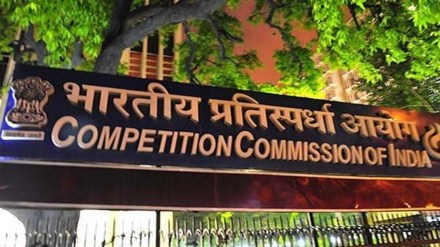By Vinod Dhall & Gaurav Desai
The Competition Amendment Bill 2022 introduced in the Lok Sabha in its just-concluded monsoon session marks a very important landmark in the journey of competition law in India. In the Statement of Objects and Reasons of the Bill, the finance minister has stated that the changes seek “to provide regulatory certainty and trust-based business environment”. Accordingly, in mergers, the proposed amendments will compress the available timelines for review by the Commission. In enforcement activities, these are expected to provide for the early finalisation of proceedings and enhanced guidance to the parties.
Mergers
One of highlights of the Bill relating to mergers is the introduction of a new deal-value threshold to catch deals where the value is very high (exceeding Rs 2000 crores) but the turnover or assets of the target fall below the present de minimis exemption. This is targeted principally at Big Data transactions such as Facebook’s acquisition of WhatsApp for a whopping $18 billion which escaped merger review in many jurisdictions because WhatsApp, being a free service, has no turnover under the Competition Act. But its mountain of data is a very valuable asset worth billions. A similar view can be taken of PVR’s acquisition of its main competitor, Inox, in India.
Also Read: Need for a bitter pill
Another amendment settles the debate about defining acquisition of “control”, by stipulating that gaining merely “material influence” over the target would amount to “control” and would require filing in the Commission. This amounts to codifying the extended interpretation of “control” already being followed by the Commission.
Since the merger review by the Commission largely relies on the information provided and affirmed by the parties, if this information is found to be false or its omits any material information, the enhanced penalty would be `5 crores as against Rs 1 crore at present. An example is the penalty imposed by the Commission on Amazon recently in the matter of its proposed acquisition of interest in the Future group.
Enforcement
In enforcement, a path-breaking proposal is to allow parties to voluntarily seek to terminate the proceedings by applying for a “settlement” where the DG’s report has established a violation, or offer remedial commitments even earlier in the proceedings after the Commission has directed the DG to undertake an investigation. This salutary provision that exists in several jurisdictions can do away with the need for costly and time-consuming proceedings both for the parties and the Commission itself thereby freeing its limited enforcement resources for other cases.
The scope of a cartel, by far the most egregious of competition offences, has been extended to cover entities which are not engaged in similar or competing businesses if they actively participate in the furtherance of such agreements. This, for example, could ensnare parties or agents involved in organising or assisting a cartel such as a distributor, retailer, or even outside parties engaged for this purpose.
Another notable provision to further incentivise disclosures of cartels, that are almost always carried out secretively, often through a “nod or a wink”, is to encourage a leniency applicant to disclose yet another cartel and claim enhanced leniency in the first cartel case, a provision used regularly in mature jurisdictions.
The Bill stipulates that to reduce uncertainty or any perception of arbitrariness in the matter of penalty amounts, the Commission must issue guidelines on the appropriate amount of penalty. It is ironic that it needed an amendment to the Act to require the Commission to do so. Many mature competition authorities have such guidelines—on the lines of the sentencing guidelines of the US. Observers have been perplexed why in certain case, the penalties have been seemingly very high while in some cases, the Commission has let off proven defaulters with a mere warning. Well-formulated guidelines might even have averted a situation wherein the Supreme Court, in an order, stipulated a blanket (rather un-nuanced) directive that the turnover for penalty purposes shall mean the “relevant turnover”.
Likely, with an eye on the SC’s abovementioned judgement, the Bill rightly requires the Commission to specify by regulations how the “turnover” would be determined for calculating penalty since the law stipulates that the penalty shall not exceed 10% of the turnover. There has been a feeling that the SC’s decision has blunted the effectiveness of the enforcement regime. For example, a penalty relating to one minor good of a multi-products company may not ruffle that party at all, while its cartel activity may be no less horrific than that of a smaller single product company. While keeping in mind the principle underlying the SC’s judgment, this presents an opportunity to the Commission to restore the deterrent effect of penalties in a balanced and reasonable manner.
The actual recoveries of the penalties imposed by the Commission has been woeful. Parties have avoided paying up for years by resorting to appeals, writs, and more. In order to deter at least frivolous appeals a salutary provision has been introduced that the party must deposit at least 25% of the penalty before the appeal can be admitted.
The Bill has to go through the normal parliamentary processes. It may have to be referred to a Select Committee. In that case, the hearings before the Committee may give an opportunity to modify some of the provisions that may appear impractical; for example, the proposal to reduce the time allowed to the Commission for forming a prima facie opinion on a merger from 30 working days to 20 calendar days; the Commission will plainly struggle to comply.
After the Bill is passed, it will require regulations or guidelines to be framed by the Commission before the actual enforcement/implementation of many of the amended provisions can see the light of the day. That light therefore may well still be some distance away. Meanwhile, the Commission can, on its own, take steps to implement some salutary provisions.
The authors are respectively, former head, CCI and senior advisor, and partner, Touchstone Partners
